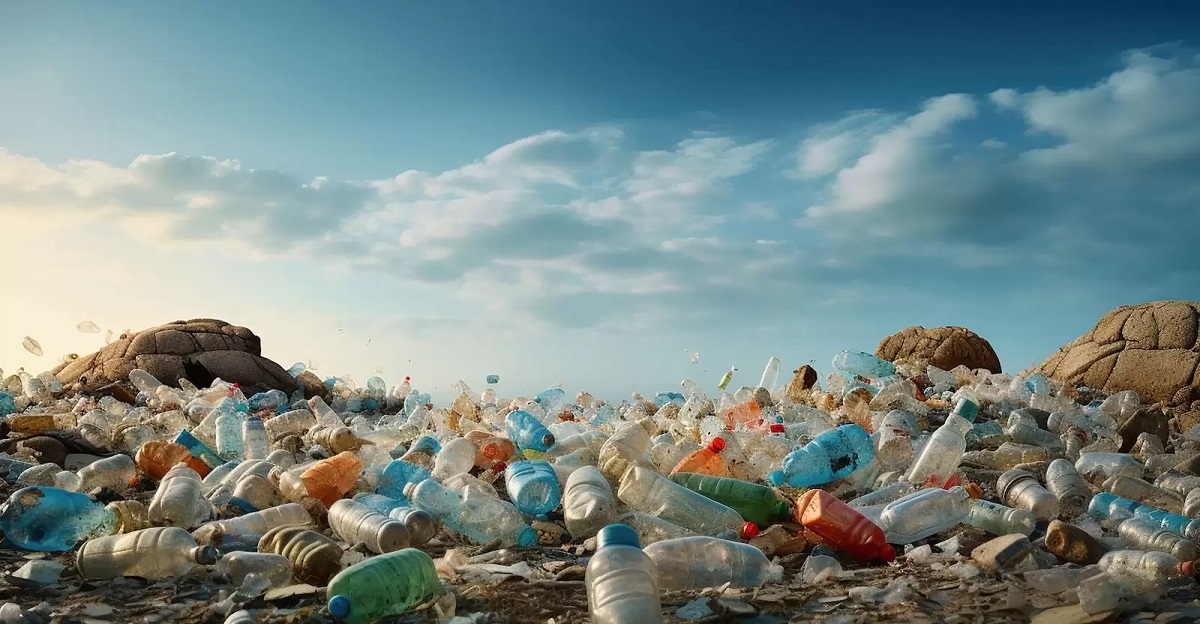
Plastic pollution is one of the most pressing challenges of our time—a crisis that threatens ecosystems, livelihoods, and the future of our planet. How can we remain passive in the face of suffocating oceans, waste-clogged lands, and future generations burdened by our excesses? Today, the Global Plastic Action Partnership (GPAP) of the World Economic Forum has welcomed seven new member countries, expanding its network to 25 nations and 1.5 billion people committed to tackling this critical issue. This milestone goes beyond numbers; it signals a global call to rethink our relationship with plastics. Angola, Bangladesh, Gabon, Guatemala, Kenya, Senegal, and Tanzania have joined this ambitious coalition, striving to transform how plastics are produced, used, and recycled. Together, they embody a collective force capable of addressing the root causes of this global crisis.
The GPAP recently added seven new countries to its impact-focused global network, which now spans 25 nations with a combined population of over 1.5 billion. This marks a pivotal step in combating plastic pollution, solidifying GPAP as the largest global initiative dedicated to tackling the root causes of plastic waste and promoting a circular economy for plastics worldwide. The growing community is committed to delivering systemic solutions to key challenges, such as promoting sustainable materials, enhancing recycling systems, and addressing greenhouse gas emissions.
The seven new countries—Angola, Bangladesh, Gabon, Guatemala, Kenya, Senegal, and Tanzania—bring fresh momentum and perspectives to GPAP’s mission to amplify impact, share best practices, and strengthen national and international efforts to combat plastic pollution. At the heart of GPAP’s model are National Action Roadmaps, country-specific strategies informed by the network’s collective expertise. These roadmaps have already mobilized $3.1 billion in investments, created safer jobs for informal waste workers, and helped countries make measurable progress toward sustainability and climate resilience.
“Reaching the milestone of 25 nations is not just a celebration of numbers but a testament to the growing determination of the international community to address one of the planet’s most urgent challenges,” said Clémence Schmid, Director of GPAP at the World Economic Forum. “These partnerships are not merely symbolic; they represent concrete commitments to rethinking how plastics are produced, managed, and reused. Together, we are paving the way toward a circular plastics economy that benefits both people and the planet.”
The Persistent Challenge of Plastic Waste
Each year, six million tons of plastic waste enter the oceans, with more than double that amount polluting land. Mismanaged plastic waste severely disrupts ecosystems, harms biodiversity, and threatens livelihoods and health worldwide. By uniting 25 countries under a common framework, GPAP fosters collaborative action and innovative solutions to help nations halt plastic waste leakage, transition to sustainable materials, and protect ecosystems and livelihoods from cascading negative effects.
Plastic pollution also contributes significantly to climate change, responsible for approximately 1.8 billion tons of greenhouse gas emissions annually—3.4% of total global emissions, according to a United Nations report. This figure is expected to rise sharply as plastic production is projected to triple by 2060.
Approximately 98% of today’s single-use plastics are derived from petrochemicals, meaning they are produced using oil and gas. The extraction and transportation of these fossil fuels, as well as the production and disposal of plastics, generate carbon emissions that exacerbate global warming. While the use of oil for electricity generation and road transportation declines with the rise of renewable energy, petrochemicals are projected to account for more than one-third of global oil demand growth by 2030 and nearly half by 2050.
Methane emissions from landfills, which are over 80 times more potent than CO₂ in the short term, can be significantly reduced through GPAP’s systemic waste management approach. Atmospheric CO₂ levels today are 50% higher than pre-industrial levels, with increases of over 2 ppm recorded annually for 11 consecutive years—a rate unprecedented in the last 65 years.
Green Jobs on the Horizon?
By promoting circular systems, GPAP aims to reduce emissions from the plastics sector while fostering economic growth through green jobs. Circular solutions could create up to six million jobs worldwide by 2030, with the plastics sector driving much of this transformation, according to a 2018 report from the International Labour Organization. While climate change mitigation measures may result in short-term job losses, a just transition to a greener economy can increase job creation potential and promote decent work.
Making the Plastics Lifecycle More Circular
The urgent need to make the plastics lifecycle more circular calls for the expansion of national policies and enhanced international cooperation to mitigate environmental impacts across the value chain. UN perspectives highlight four critical levers for reversing the plastics crisis: greater support for recycled plastics markets, policies to drive innovation in plastics technology, more ambitious national policy measures, and stronger international collaboration.
- Developing Markets for Recycled Plastics: Although the global production of secondary plastics has more than quadrupled over the past two decades, it accounts for just 6% of all raw materials. Combining supply-side incentives, such as extended producer responsibility schemes, with demand-side measures, such as recycled content targets, can help scale recycled plastics markets.
- Fostering Innovation for Circular Plastics: Innovative technologies can deliver significant environmental benefits by reducing the need for virgin plastics, extending product lifespans, and enabling better recycling. However, innovation in waste prevention and recycling currently accounts for only 1.2% of all plastics-related patents.
- Strengthening National Policies: A review of key regulatory and economic instruments across 50 countries reveals that plastic policy frameworks remain fragmented and need significant strengthening. While over 120 countries have implemented bans or taxes on single-use plastics, broader policy measures to curb overall plastic consumption and enhance waste management remain limited.
By addressing these challenges and embracing systemic solutions, GPAP and its growing network aim to reshape the future of plastics, making a sustainable and circular economy a global reality.

